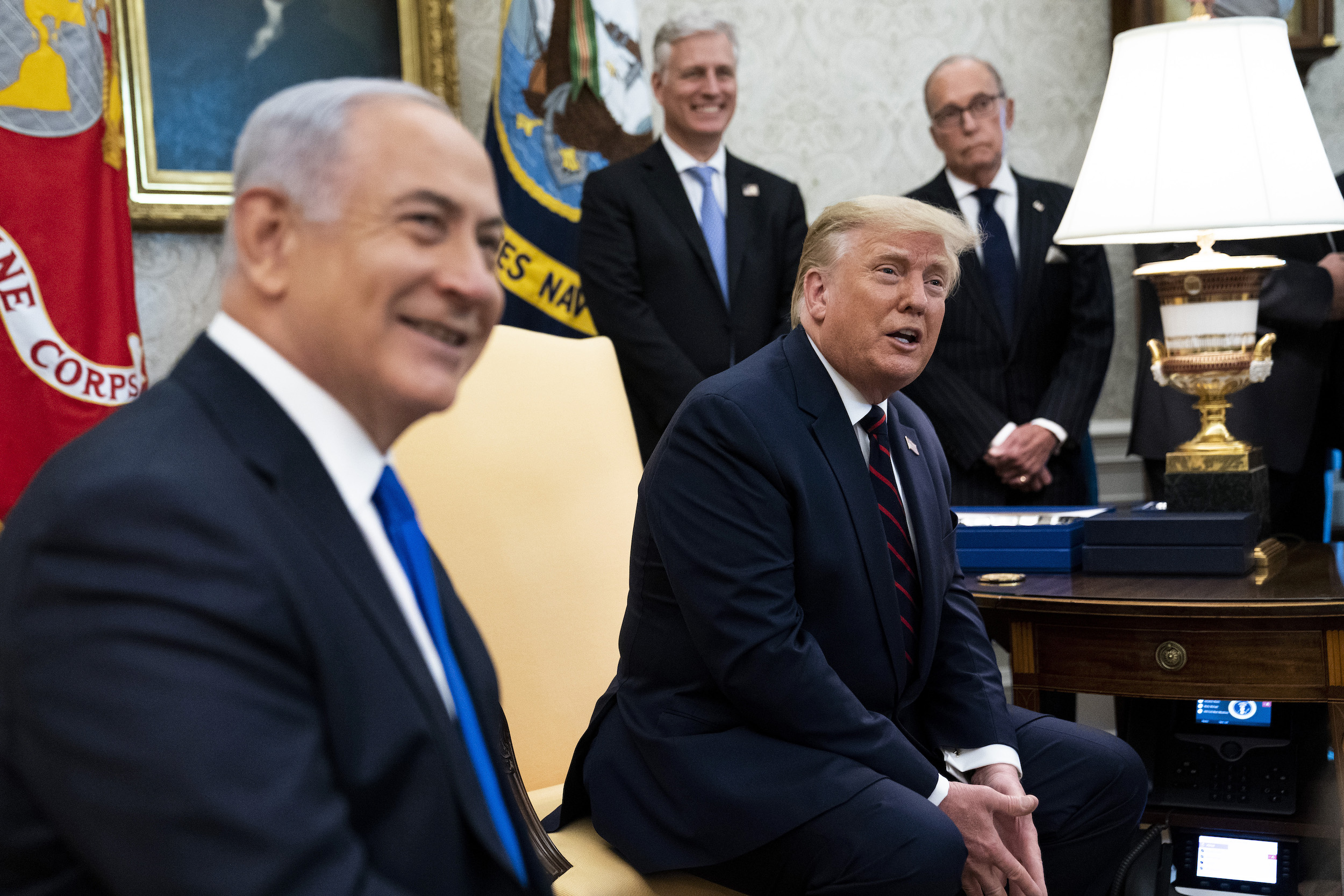Four years ago I had a front-row seat as President Donald Trump, Prime Minister Benjamin Netanyahu, the United Arab Emirates’ Foreign Minister Sheikh Abdullah bin Zayed Al Nahyan, and the Kingdom of Bahrain’s Foreign Minister Dr. Abdullatif bin Rashid Al Zayani signed the Abraham Accords in a ceremony on the south lawn of the White House. It was the most significant diplomatic breakthrough in a generation and would include the Republic of Sudan and the Kingdom of Morocco before the end of the year.
Four years later the Middle East, a region notorious for intractable problems and conflict, faces the greatest risks to peace and stability since 1979. That was the year the Soviet Union invaded Afghanistan, Iran’s Shah was overthrown by a radical theocracy taking 52 American hostages and our embassy, and the Grand Mosque in Mecca was stormed by a group that claimed the end of time had begun.
At stake are two competing visions for the Middle East—and there could not be a starker contrast between the two. One, reflected in the Abraham Accords, provides genuine promise and potential to build on convergent interests and chart a course towards peace. The other can be seen in the chaos and escalating conflict embroiling the region today, the inevitable result of the subordination of U.S. interests and those of our partners and allies.
President Trump and a small team of advisers led by Jared Kushner challenged the orthodoxy that had governed Middle East policy. They were determined to pursue U.S. interests and those of our friends while unflinchingly confronting our shared adversaries, notably ISIS and Iran. As businessmen, they intuitively sought realistic and attainable goals built on mutually beneficial trade relationships which provided the rationale for security cooperation required to defend them. The results speak for themselves.
Economic ties between Abraham Accords countries have reached $10 billion. According to Israel’s Central Bureau of Statistics, total trade between Israel and Accords countries exceeded $4 billion in 2023—a 16 percent increase over 2022—encompassing gas and water exports and defense trade, as well as services, software, and cyber.
The Biden-Harris administration’s regrettable decision to restore the pursuit of Obama-era policies of offering Tehran incentives before obtaining concessions has isolated Israel and our other allies. In dismantling our deterrence, this White House signaled weakness, and it was predictably exploited.
Doug Mills/Pool/Getty Images
Since the horrific attack against Israel on October 7, 2023, there have been 183 attacks on U.S. forces in Iraq and Syria and at least 246 strikes conducted by Iranian-sponsored Houthis against U.S. forces and commercial shipping in the Red Sea, resulting in over 180 injured U.S. service members and three fatalities.
Despite these sacrifices, the Middle East is as unstable as it has been in a generation. Iran is closer to a nuclear weapon than ever before. Its proxies attack U.S. forces with impunity. Israel is confronting its greatest array of threats since 1973. One of the world’s most significant maritime trade routes has been disrupted. And global energy and trade have been threatened, exacerbating already high commodity process and inflation.
To put it simply, by every objective measure the Biden-Harris administration’s Middle East policies have wrought disaster. Their failure to reverse course despite the overwhelming evidence stacked against them constitutes national security malpractice and indicates that greater risks lie ahead. The greatest pitfall in policy formulation and execution is judging options by orthodoxy rather than outcomes. The ultimate arbiter of policy should be its result.
Despite all these challenges, the Accords endure. They endure because the promise of peace and prosperity remains strong and can be resurrected. To fulfill that promise, renew, and even expand the Abraham Accords—including via the addition of the Kingdom of Saudi Arabia—it is vital to discard false assumptions and the poor policies they produce. First and foremost, that means America must reject any further Iranian appeasement, because as the region’s leaders will tell all willing to listen, you cannot serve as both arsonist and fireman at the same time.
In the end, the world has seen two competing visions for the Middle East, and their results are self-evident. President Trump successfully confronted America’s adversaries and built an enduring peace between Israel and its Arab neighbors. The Biden-Harris administration has appeased our enemies and abandoned our allies, leaving the Middle East in flames. It’s not too late to choose peace.
Robert Greenway is the Director of the Allison Center for National Security at the Heritage Foundation and member of the team that negotiated the Abraham Accords as Deputy Assistant to the President and Senior Director for the Middle East and North African Affairs on the National Security Council under President Trump.
The views expressed in this article are the writer’s own.
